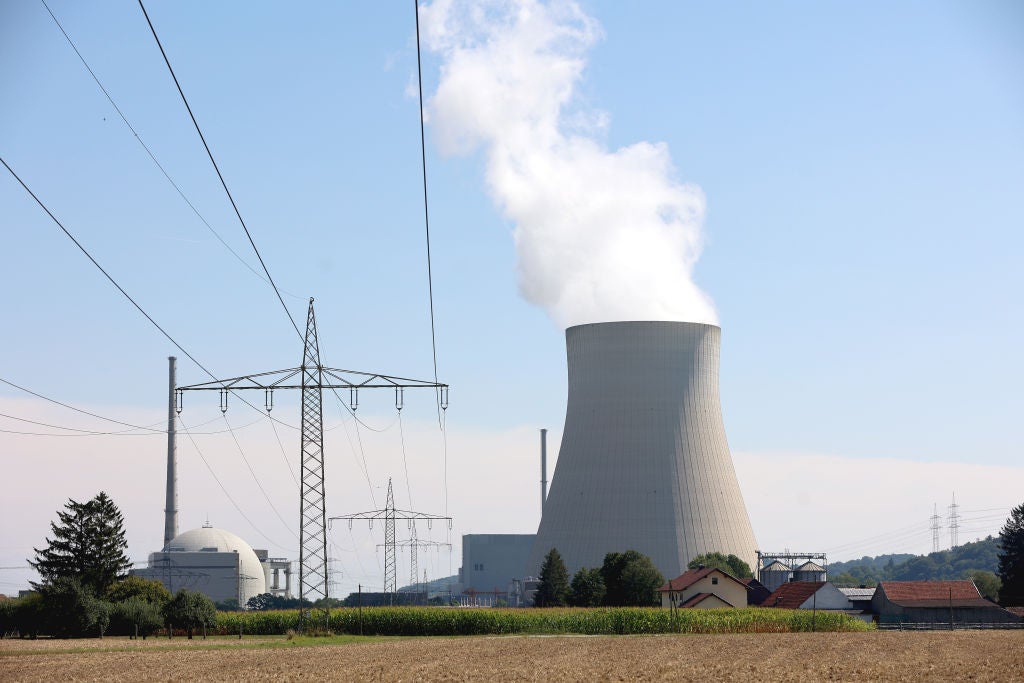In Germany, energy insecurity has sparked discussions about keeping the country’s last three nuclear power plants running longer than planned. The plants are set to close by the end of the year. The government is currently evaluating the electricity system, and depending on the results, an extension of nuclear power operations might not be off the table.

Decommissioning the country’s remaining nuclear plants as planned is something just a sixth of Germans would like to stick to, according to polling from political research institute Infratest dimap. Meanwhile, 41% of Germans think that operations could be extended by a few months, and just as many are open to longer term use of nuclear energy.

Discover B2B Marketing That Performs
Combine business intelligence and editorial excellence to reach engaged professionals across 36 leading media platforms.
Germans who vote for the AfD and FDP are especially likely to be in support of the long-term use of nuclear energy, while respondents who vote for the Greens are most likely to be against it.
It is a big U-turn in Germany’s perception of nuclear energy. The country has been moving away from nuclear energy in the last two decades. The late 1970s and 1980s saw widespread protests against nuclear energy, with the slogan “Atomkraft? Nein danke”. An April 2022 survey from Infratest dimap shows that just a few months ago, 38% of German were still for the nuclear phase-out by the end of the year, while 53% supported continued nuclear power.
Polling done by the newspaper Der Spiegel shows similar trends. According to their survey, 41% of Germans are currently in favour of building new nuclear plants. In a similar poll done 33 years ago, only 3% of Germans thought the country should build new plants.
The shift in public opinion reflects the population’s concerns about the energy and cost-of-living crises. Germany is facing a possible energy shortage this winter and will struggle to have enough gas even if reserves are full, the country’s regulator told Bloomberg. Mothballed coal plants were already brought back online as part of a gas emergency plan.

US Tariffs are shifting - will you react or anticipate?
Don’t let policy changes catch you off guard. Stay proactive with real-time data and expert analysis.
By GlobalDataThe nuclear issue receives a lot of political and media attention, with German Chancellor Olaf Scholz remarking on 3 August that a nuclear extension could “make sense”. However, delaying the phase-out would be impractical, says Arne Jungjohann, a political scientist and member of the Green Academy of the Heinrich Böll Foundation.
“What differentiates Germany from many other countries is that the nuclear question has already been decided many years ago,” Jungjohann explains. “While it’s easy to suggest continuing operating nuclear power plants this winter or next, I think that wouldn’t be pragmatic.”
He adds: “First of all, the phase-out has been scheduled for ten years. It’s been prepared for and if the plants are asked to operate longer, they will need more fuel rods. While Germany can produce its own rods, the uranium comes from other countries, including Russia and Kazakhstan. Secondly, even if these three plants continue to operate, they will technically not be able to replace natural gas in the electricity sector. Natural gas is used in Germany as a flexible and additional source, and that kind of flexibility is not something that nuclear power can provide.”
If the shift in public opinion had happened 15 years ago, the situation could have been different. There might have been more economic pressure and it would have been more doable in a practical sense. But now, the nuclear operators themselves don’t seem to be thrilled at the prospect as they are still preparing for the decommissioning of their plants.
There are also safety concerns, says Jungjohann.
“A few years ago, these three nuclear plants would undergo regular and thorough safety inspections. Because of the phase-out, the government decided that a lot of new investments or upgrading the plants were not needed since they would go offline soon. I think it would not be responsible to continue operations in terms of safety,” he says.
“It would cost a lot of effort to delay the nuclear phase-out. It is difficult to predict what happens next. The Greens would have to agree, and they are basically in a position to derail the plans because they would be in charge of implementing this. I would say it’s not off the table to have an extension, but if it is decided to continue operations, it would mainly be a highly symbolic decision.”





